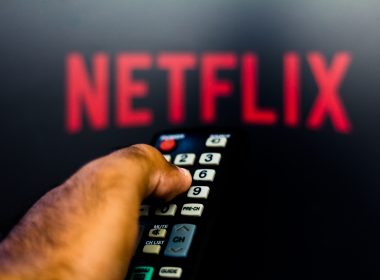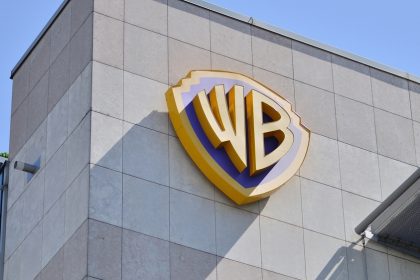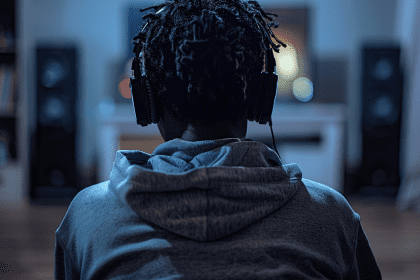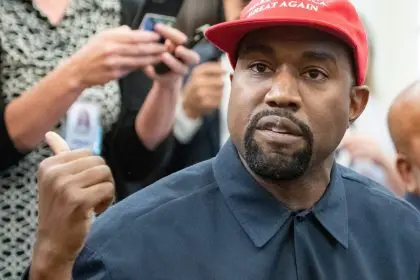The battle that could determine whether human performers have a future in video games just reached a turning point, and the good guys might actually be winning for once. After nearly a year of striking, Hollywood’s video game performers have secured a tentative agreement that could fundamentally change how artificial intelligence gets used in the gaming industry.
This isn’t just another boring labor dispute that only affects people you’ve never heard of. This is about whether the voices bringing your favorite video game characters to life will be replaced by AI systems that can mimic human speech with terrifying accuracy. The outcome of this fight will probably influence how AI gets used across the entire entertainment industry for years to come.
The fact that performers were willing to walk away from work for almost a full year tells you everything you need to know about how seriously they took this threat. When people are willing to sacrifice their paychecks to fight for their professional survival, you know the stakes are higher than typical contract negotiations.
The AI threat that terrified an entire industry
Understanding why this strike mattered requires grasping just how powerful AI voice technology has become. We’re not talking about the robotic computer voices from science fiction movies. Modern AI can create digital replicas of human voices that are virtually indistinguishable from the real thing, and the technology keeps getting better and cheaper every month.
For video game companies, this technology represents an incredible opportunity to cut costs and speed up production. Instead of hiring voice actors for every character, they could potentially create one digital voice model and use it to generate unlimited dialogue without ever paying another penny to human performers.
The performers saw this coming and realized they were staring at potential career extinction. Unlike other industries where AI might enhance human work or handle routine tasks, voice replication technology could completely replace human performers in many gaming contexts.
What made the situation even more threatening was how easy the technology had become to use. Companies wouldn’t need massive budgets or specialized expertise to start replacing human voices with AI alternatives. The tools were becoming accessible enough that any game developer could experiment with artificial voice generation.
When your voice becomes someone else’s property
The scariest part of the AI voice situation wasn’t just that companies might use artificial voices instead of hiring human performers. It was the possibility that they might train their AI systems using existing recordings of human voices without permission or compensation.
Imagine spending years building your career as a voice actor, creating memorable characters that become beloved by gaming communities around the world. Then imagine discovering that a company has fed all your previous work into an AI system that can now generate unlimited new performances in your voice without paying you anything.
That nightmare scenario wasn’t just theoretical speculation. The technology to make it happen already exists, and some companies were apparently moving in that direction without much consideration for the performers whose voices they were essentially stealing.
The strike represented performers drawing a line in the sand and saying that their voices and likenesses couldn’t be used without consent and fair compensation. That might sound like basic common sense, but the rapid development of AI technology had created a legal and ethical gray area that needed clarification.
The gaming giants who had to blink first
The companies involved in these negotiations weren’t small independent developers who might struggle with additional labor costs. We’re talking about some of the biggest names in gaming, including Activision, Electronic Arts, Disney, Epic Games, and Take-Two Interactive.
These companies generate billions of dollars in annual revenue and employ thousands of people across multiple continents. The fact that they eventually came to the negotiating table with meaningful AI protections suggests that the performers’ concerns were legitimate and that public pressure around AI ethics was becoming impossible to ignore.
The gaming industry has historically been pretty ruthless about cutting costs and maximizing profits, often at the expense of the creative professionals who make their products possible. The willingness to negotiate AI protections represents a significant shift in how these companies think about their relationships with performers.
The tentative agreement also suggests that the companies recognized the potential public relations nightmare of being seen as the villains in a fight between human creativity and artificial intelligence. Gaming communities are passionate about the characters and stories they love, and replacing beloved voice actors with AI might have created serious backlash from players.
What victory actually looks like
The specifics of the tentative agreement haven’t been fully disclosed yet, but union leadership is describing it as a deal that puts necessary AI guardrails in place to protect performer livelihoods. That language suggests they achieved meaningful restrictions on how companies can use AI to replicate human voices and likenesses.
Real victory in this context probably means that companies will need to get explicit consent before using AI to replicate a performer’s voice, and that performers will receive appropriate compensation when their voices are used to train AI systems or when AI systems generate new content based on their previous work.
The deal also likely includes provisions that ensure human performers continue to have opportunities for new work, rather than being completely replaced by AI alternatives. That might mean guaranteeing minimum numbers of human-performed roles or requiring companies to prioritize human performers for certain types of characters.
The fact that this agreement could serve as a template for similar negotiations in film and television makes it even more significant. If video game performers successfully established AI protections, other entertainment unions will probably use similar strategies to protect their members from artificial intelligence displacement.
Why gamers should actually care about this
You might be wondering why anyone who just wants to play video games should care about contract negotiations between unions and corporations. The answer is that this fight will probably determine the quality and diversity of voice acting in games for years to come.
AI-generated voices might be cheaper and more convenient for companies, but they’re unlikely to match the creativity, emotion, and spontaneity that human performers bring to character development. The best video game voice acting involves performers making creative choices that enhance storytelling and character development in ways that AI systems can’t replicate.
If companies had been allowed to replace human performers with AI alternatives without restrictions, gaming would probably have become more homogenized and less emotionally engaging over time. The strike outcome helps preserve the artistic collaboration between developers and performers that creates memorable gaming experiences.
The agreement also sets important precedents for how AI technology gets integrated into creative industries. Instead of allowing AI to completely displace human creativity, this deal suggests a path toward using AI as a tool that enhances rather than replaces human artistic work.
The broader war against AI displacement
The video game strike represents just one battle in a much larger conflict over how artificial intelligence will reshape the job market across multiple industries. Entertainment workers are among the first to face direct threats from AI technology, but they certainly won’t be the last.
The strategies and protections developed during this strike will probably influence how other professions approach similar challenges. If performers can successfully negotiate AI guardrails with some of the world’s largest entertainment companies, other workers facing AI displacement might be able to use similar tactics.
The entertainment industry also serves as a testing ground for public attitudes about AI and human creativity. How audiences respond to AI-generated content versus human-created content will influence how aggressively companies pursue AI alternatives across different sectors.
The strike outcome suggests that there’s still significant value in human creativity and that companies can’t simply replace human workers with AI alternatives without facing resistance from both workers and consumers.
What comes next for gaming voices
Even with this tentative agreement in place, the relationship between human performers and AI technology in gaming will continue evolving. The deal probably creates a framework for managing that relationship rather than stopping AI development entirely.
Future negotiations will likely need to address new AI capabilities as the technology continues advancing. The protections established in this agreement might need regular updates to remain effective as AI systems become more sophisticated.
The gaming industry will also need to figure out how to use AI technology in ways that enhance rather than replace human creativity. That might mean using AI for certain types of background characters while preserving human performers for major roles, or using AI to help performers create more diverse character voices.
The success of this strike might encourage performers in other entertainment sectors to take similar stands against AI displacement. Film and television actors, musicians, and other creative professionals are probably watching these developments closely and considering their own strategies for dealing with AI threats.
The victory that changes everything
The tentative resolution of the video game strike represents more than just a successful labor negotiation. It’s a statement that human creativity still has value in an age of increasingly sophisticated artificial intelligence, and that workers can successfully organize to protect their livelihoods from technological displacement.
For gamers, this outcome probably means continued access to the high-quality voice acting that makes their favorite characters memorable and engaging. For performers, it means their careers won’t be eliminated by AI systems trained on their previous work without compensation.
Most importantly, this agreement establishes a template for how other industries might approach similar challenges as AI technology continues advancing. Instead of allowing AI to completely displace human workers, this deal suggests a path toward using AI as a tool that enhances rather than replaces human creativity and skill.
















